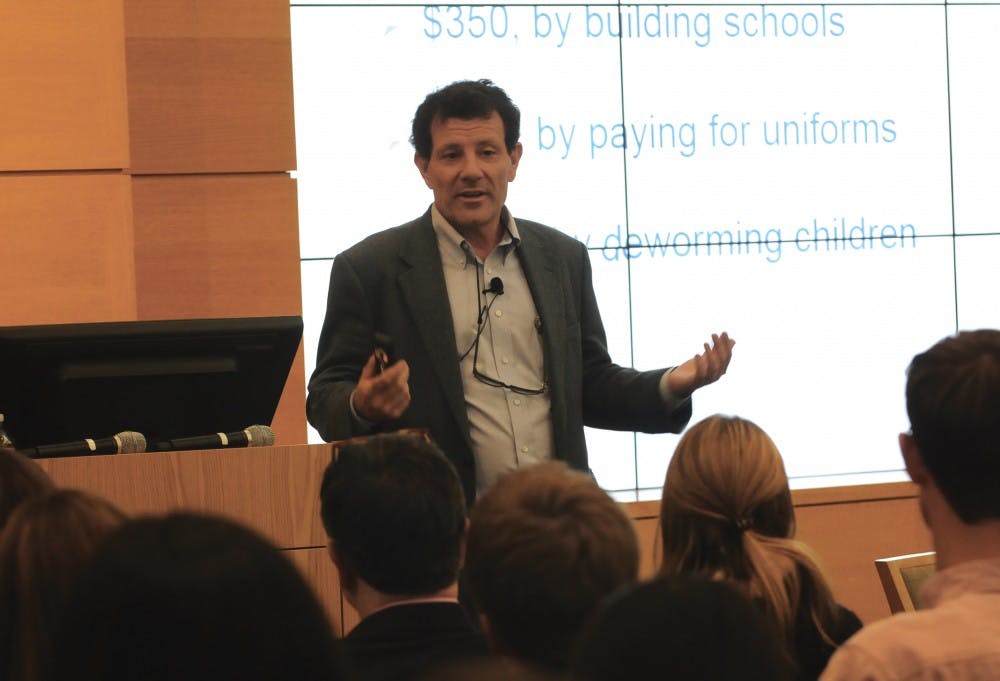
Pulitzer Prize-winning New York Times columnist Nicholas D. Kristof told a packed crowd in Huntsman Hall that he mourns the “empathy gap” that pervades most of American culture.
While delivering a talk on Monday night through the Authors@Wharton Speaker Series, Kristof illustrated the discrepancy with the statistic that the top 20 percent of Americans donate less to charity, as a fraction of their income, than the bottom 20 percent.
Kristof centered the hour-long talk, which preceded 30 minutes of Q&A, on a very similar topic to the focus of his latest book, “A Path Appears: Transforming Lives, Creating Opportunity .” Drawing upon ideas about the art and science of giving, Kristoff emphasized the importance of seeing poverty as “not simply an economic failing, but also a moral failing.”
A documentary version of the book will air on PBS in early 2015.
Explaining that 97 percent of Americans believe there should be more opportunity for people at the beginning of life, Kristoff suggested that — despite the overwhelming support — the nation as a whole has done relatively little to lessen the gap.
Kristof used various examples to paint a picture of the consequences of the nation’s inaction, such as the story of a boy named Johnny, who was unable to receive routine hearing checkups as a newborn. At the age of four , when Johnny was discovered to be fully deaf in one ear and nearly deaf in the other, Save the Children, an independent children’s charity, reported that his hearing could be recovered. His ability to speak, however, could not be.
Kristof’s anecdotal evidence successfully drew upon the audience’s sympathy.
“The way Kristof incorporated personal anecdotes alongside statistics was a really effective way to articulate his points,” College sophomore Cassidy Golden said of the talk.
Kristof closed on a positive note, adding that through his travels, he saw people do the right thing even under the most stressful conditions — he once witnessed a nun defy a warlord to protect victims of genocide.
“Side by side with the worst of humanity, you can see the very best,” he said.
The Daily Pennsylvanian is an independent, student-run newspaper. Please consider making a donation to support the coverage that shapes the University. Your generosity ensures a future of strong journalism at Penn.
DonatePlease note All comments are eligible for publication in The Daily Pennsylvanian.




